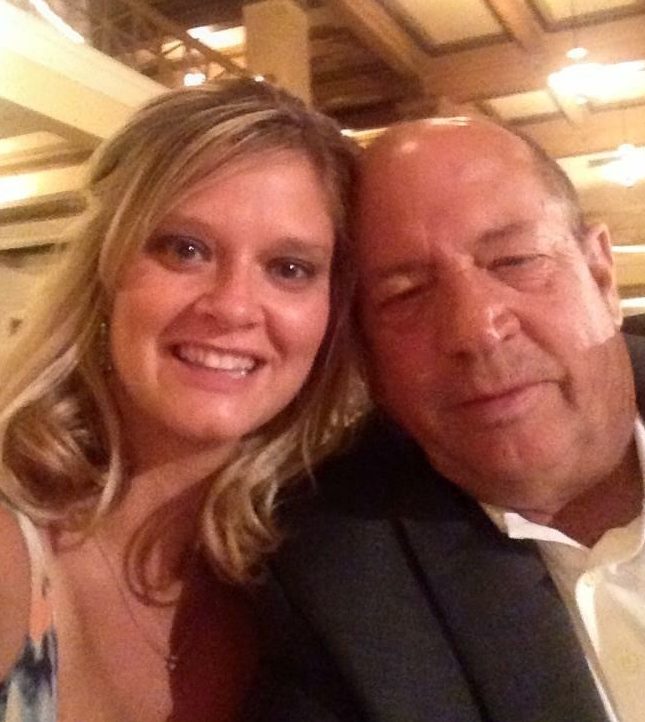My Dad’s Hero

Newark health teacher, Makenzie Miskell, welcomed Lifeline of Ohio Educators into her classroom for years. She knew it was important for her students to understand the facts about organ, eye and tissue donation, so they could make a well-informed, responsible decision at the BMV. In 2013,her relationship with Lifeline of Ohio evolved from a professional relationship, to one more personal.
At a routine follow-up visit to his doctor, Makenzie’s father, Fred, learned his kidney function was compromised. Within days he was diagnosed with end stage kidney disease, and his family learned that he would need to begin life-sustaining dialysis, and he would need to be listed for a lifesaving kidney transplant.
Makenzie shares with her students details about the challenges her family faced. Her memories help students understand the decision to become a registered donor is not just about organs and tissues, it is about saving and healing the lives of REAL people and their families. She recalls how dialysis three times a week disrupted Fred’s freedom. She explains how the deaths of friends (which were made at the dialysis center) weighed on his emotions and dampened his optimism. Suddenly the statistic that “twenty people die each day waiting for transplant”, was no longer a just a number to her. It was real people.
After so much waiting, they got finally got a call that a kidney was available. They rushed to the hospital, but it turned out this kidney was not suitable for Fred. The roller coaster ride of emotions continued, as did dialysis. For two years, dialysis three times a week was Fred’s lifeline to a future.
On January 7, 2016, the family gathered to celebrate Makenzie’s sister’s birthday. Right after she blew out the candles, the phone rang. It was “THE CALL.” Makenzie tells her students, “I cried, he cried, we all cried!” They arrived at the transplant center cautiously optimistic. Not only did they remember that the last time they returned home without a new kidney, they were fully aware that somewhere a family was grieving the loss of someone they loved.
Makenzie makes certain her students truly understand the depth of her gratitude for her father’s donor. She never fails to share how grateful she is for the hero who gave her dad a second chance at life. Her dad gets to watch six grandkids dance, play ball, and run around their “Frapple’s” house on Christmas. Four of them were born after Fred’s transplant and might never have known him without this gift. Makenzie tells her students the gift her father received from his donor is the best gift they ever received.